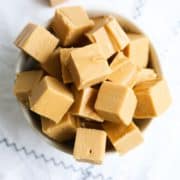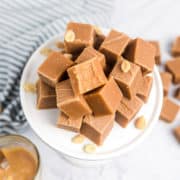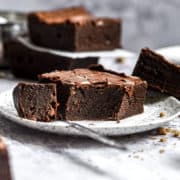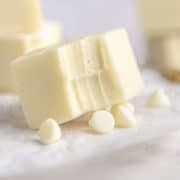Lemons are one of the most popular additions to all kinds of recipes, both sweet and savory. Useful for everything from adding a zesty zip to a seafood platter, making lemon desserts or even garnishing a gin and tonic, it's always worth keeping fresh whole lemons in the fridge. Discovering how to store lemons and how long lemons keep means you can have fresh lemon zest, juice, or cut lemons to use whenever you wish.
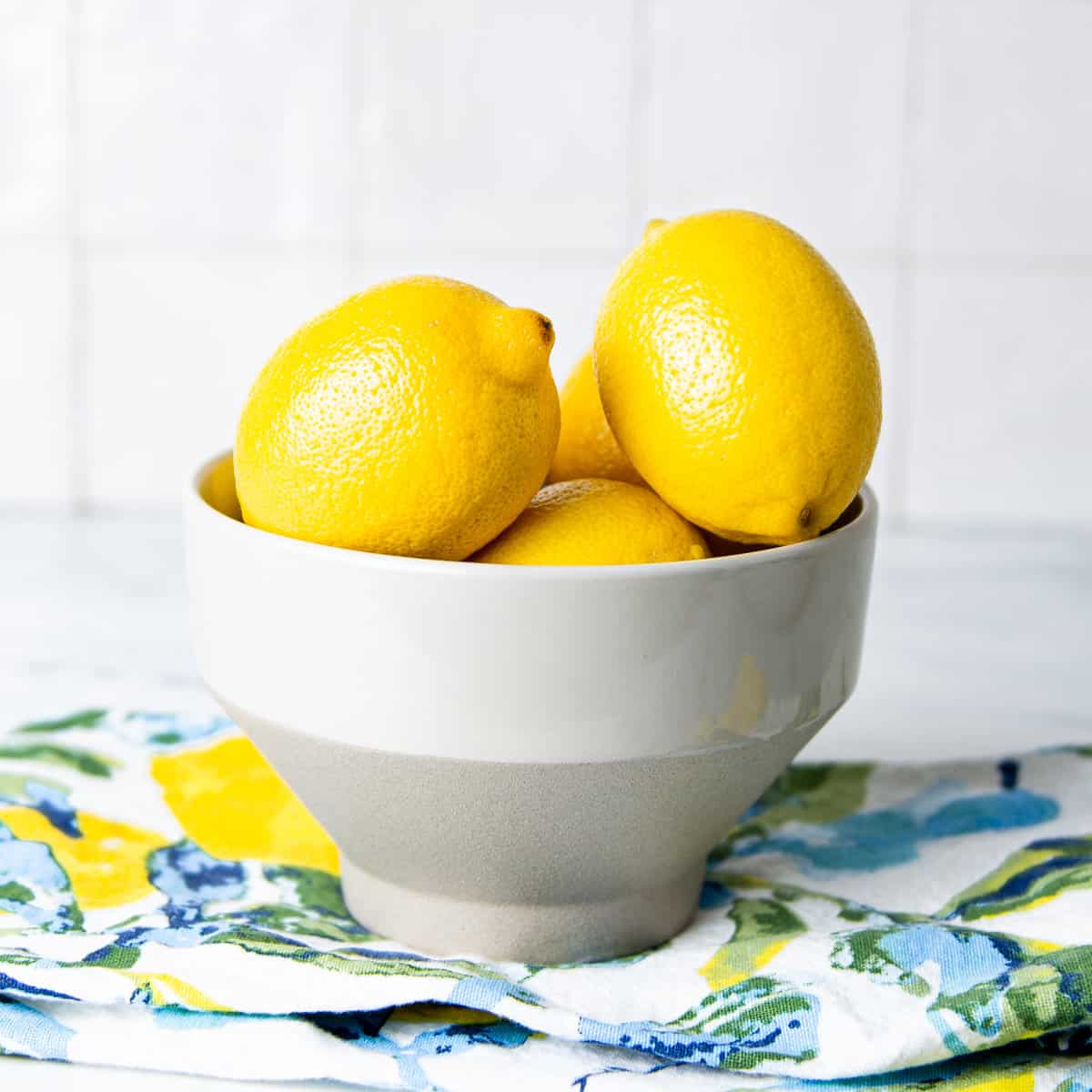
Jump to:
Closely related to other citrus fruits such as lime and orange, lemon is a popular flavor for all kinds of tasty recipes from lemon parfait and lemon crunch cake to lemon pie.
If I find myself with more lemons than I know what to do with, I like to make preserved lemons, which have been popular since ancient times. I chop fresh lemons and marinate them in a salted cold water mixture for a few weeks. They're amazing when added to a chicken stew, fish dishes, and any recipe where a citrussy kick would work.
Like most fruits, lemons are a good source of nutrients. They offer Vitamins B6 and C, along with fiber and potassium.
What are Lemons?
Lemons (Citrus X Limon) are one of the most popular citrus fruits in the world. First introduced to North Africa and Spain around 1100 CE, the crusaders introduced it into more parts of Europe. Christopher Columbus brought lemons to American shores during the 1400s. It was believed to be a type of citron (Citrus Medica) at first, but now we know the lemon is an individual hybrid species.
This fruit has such a distinctive tang it's hard to confuse it with anything else, although some recipes call for your choice of lemon or lime. Lemons come in a variety of types. One popular type is the Meyer lemon, which is the best kind to use for lemon cheesecake bars. Meyer lemons are thought to be a cross between lemons and tangerines and are enjoyed for their juiciness and also because they're not as bitter as most other kinds.
Other popular lemon varieties include Eureka, a fragrant and juicy kind, and the Asian Yuzu lemons which taste like a mixture of lemon, mandarin, and grapefruit. They are especially good in salad dressings.
Tips for Buying Lemons
The best way to choose lemons is to give them a little squeeze. If they give a little, that means they're fresh and juicy. Although manhandling fruit and vegetables at the grocery store is usually a no-no, a gentle squeeze isn't going to harm this fruit and it's a simple trick to determine freshness.
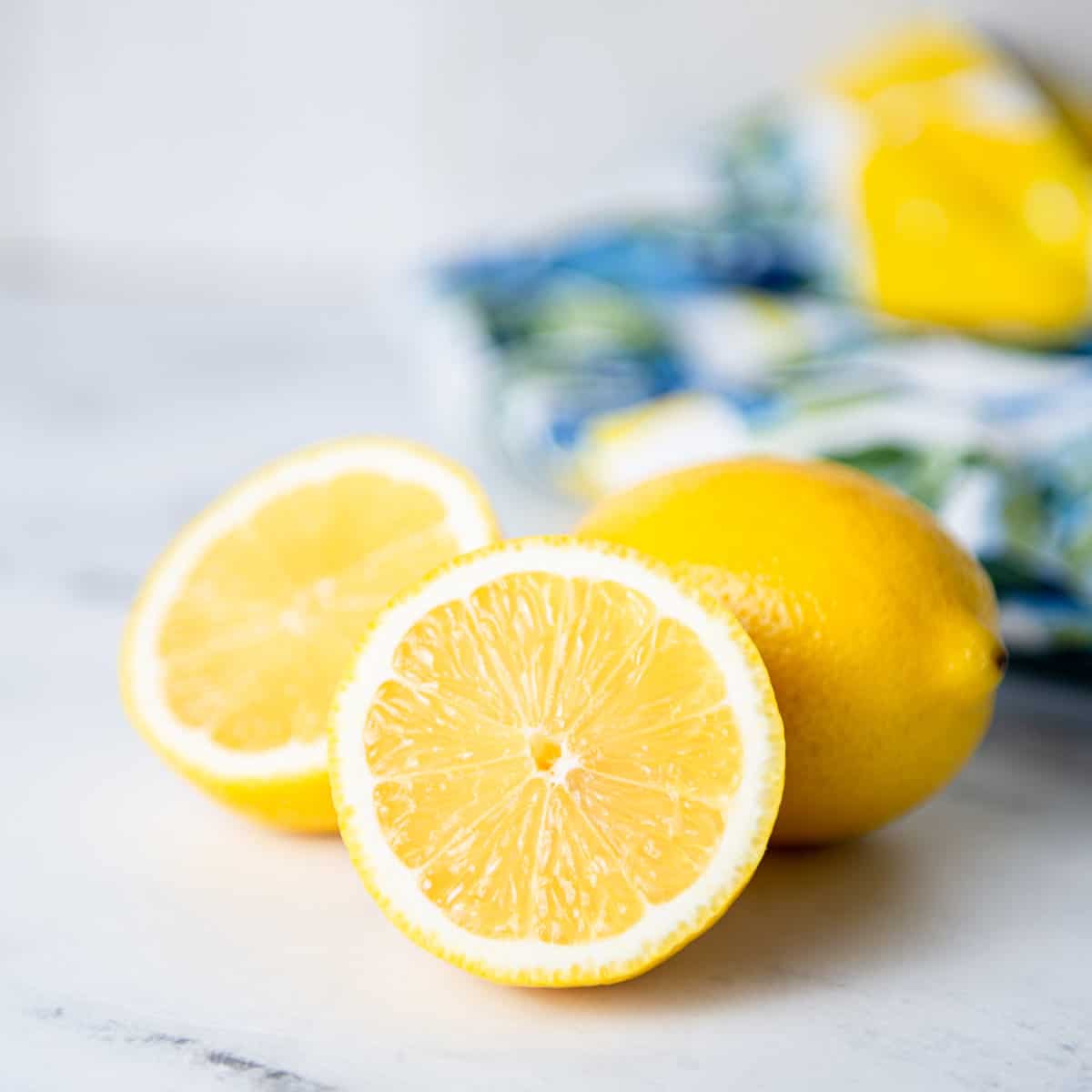
How to Store Lemons
The method you choose to store lemons determines how long they'll last. You can expect good quality fresh lemons to keep for weeks, or even months, depending on which of the following different storage methods you choose.
- Fresh lemons can be kept at room temperature for up to a week if you plan to use them soon. On the kitchen table or countertop or in a hanging basket are all fine. Unless you're going to eat them within a couple of days, keep them away from direct sunlight.
- They can also be refrigerated for up to a month, so long as you keep them in a sealed container or Ziploc bag in the fresh produce or crisper drawer.
- Keep lemons away from other fruits such as bananas or apples which release ethylene gas as they ripen and will make the lemons spoil faster.
- Cut lemons should have the cut end or exposed end sealed in food wrap or plastic wrap before putting them in the refrigerator, or else they will dry out quickly.
- Fresh lemon juice will keep for about 4 days in a sealed container in the refrigerator.
- To freeze whole lemons, put them in a freezer bag first and then use them within 4 months.
- To freeze lemon wedges or lemon slices, discard the seeds, then flash freeze them on a baking sheet, before transferring them into freezer bags or an airtight container.
I love to freeze fresh lemon juice in ice cube trays so I can easily pop out the amount I need for a recipe. I also do this will broth and wine so I can always grab the amount I need from the freezer. If you want to try this storage method, freeze the lemon juice in ice cube trays, then transfer the lemon ice cubes into freezer bags. This is by far the easiest way to always have lemon juice on hand.
How to Tell if Lemons are Spoiled
Like any other kind of produce, lemons can spoil, so it's a good idea to find out how to tell and avoid food waste. White or black spots on the fruit are probably mold and that's a bad sign. A little give in the firmness is good, but too many squishy soft spots are not.
Overripe lemons will be shrunken and hard and are not good to eat. Lemons turning green doesn't mean they're bad - this is actually a natural response to extreme temperature changes. Do take a close look though, since a greenish hue to the skin is fine, but green can also be mold! You will be able to tell which you have.
Common Questions
Some recipes call for lemon rind only, rather than for any of the juice. Your best option for zesting a lemon is to use a lemon zester if you have one. If not, a regular grater or micro-plane will get the job done too. Just grate the yellow zest off and leave the white pith intact, since that doesn't really taste of anything and will protect the lemon flesh inside when left on.
I've tried plenty of recipes for lemony desserts and lemon cookies, but this one is my absolute favorite. These cookies are really delicious and make great gifts too, either in a glass jar with a ribbon or in little cellophane bags.
Tossing chopped fruit like apples or pears in lemon juice can stop them from turning brown or at least slow the process right down. The reason behind this is that lemon juice is acidic and this stops an enzyme stored in the fresh fruit's cells from reacting with the oxygen in the air and turning brown. Any sour citrus juice will work if you're out of lemons! For the best results add the lemon juice as soon as you cut the fruit.
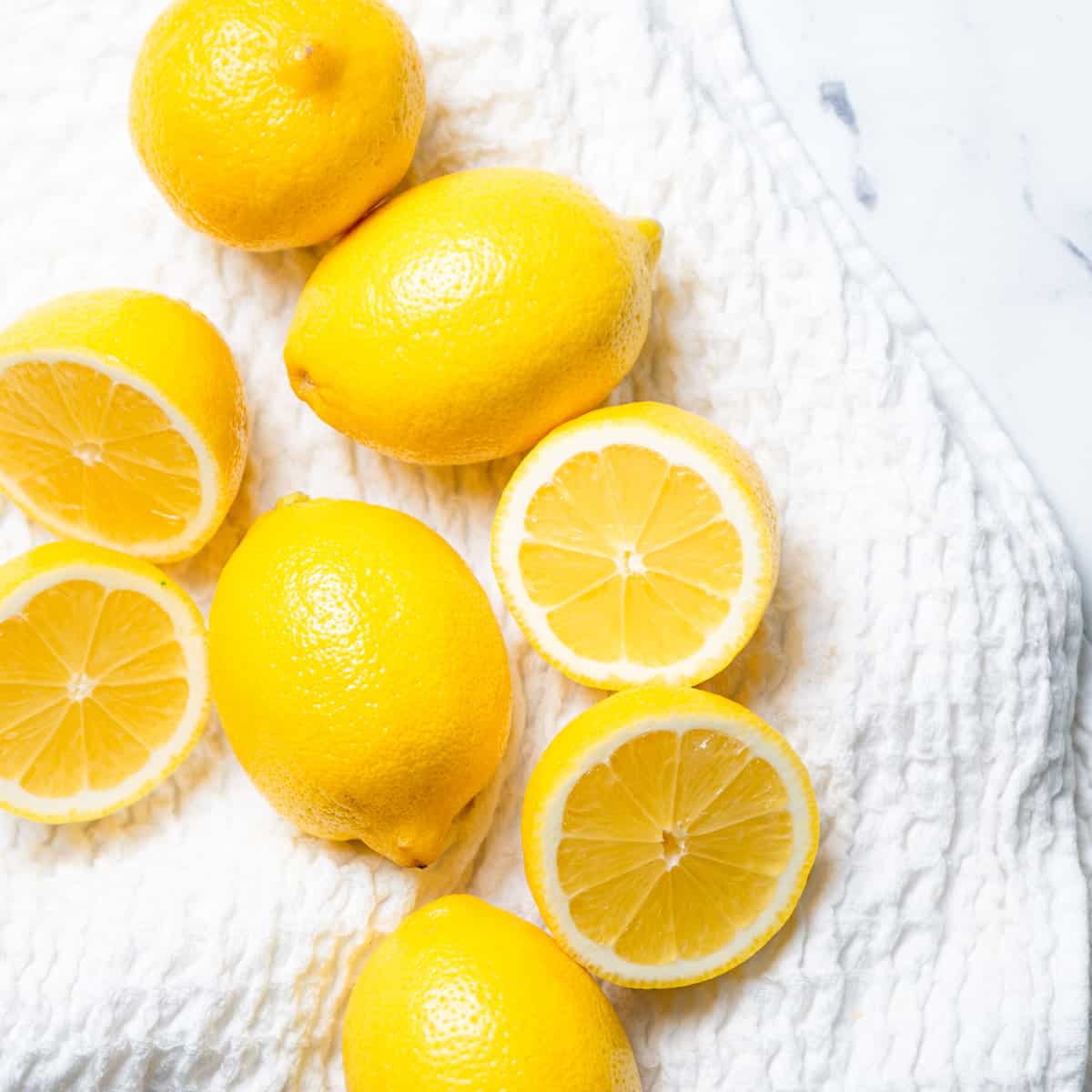
Interesting Facts
The average lemon gives 3 tablespoons of juice, 1 tablespoon of zest, and 8 seeds.
- The heaviest lemon was 11 pounds, 9.7 ounces.
- You would need to wire up 500 lemons to conduct enough electricity to power a single flashlight bulb.
- The word lemon comes from an Asian word meaning “sour fruit.”
Now you know not only how to store lemons for your favorite recipes, but you might also be inspired to try them in a new dish since they're such a versatile fruit. They also make an attractive garnish for drinks, desserts, or seafood dishes.


